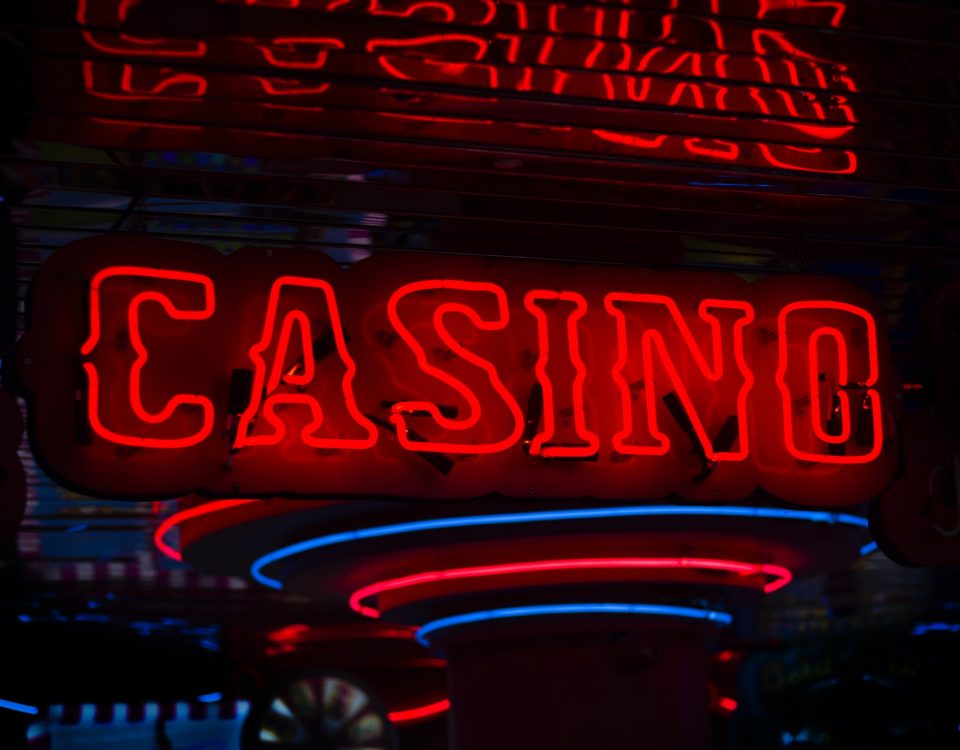- Klantenservice
- shelley duvall children

Een online casino kiezen
28 december 2022An extensive and systematic analysis of juvenile justice policies and practices will be undertaken, especially those reflecting any recent philosophical shifts. Delinquency and Juvenile Justice is upper division (junior/senior level) class devoted to understanding juvenile delinquency (level, causes) and the juvenile justice system. Course Descriptions ; Outside Department Courses . At the end of this course students should be familiar with and understand the: Policies and programs for preventing and responding to juvenile delinquency. Three exams will be given on the dates indicated in the Group projects, including group discussion threads and/or replies, and assignments will not be accepted after the due date outside of special circumstances (e.g. 12. Absences for any reason must be kept to a minimum. this book in your library, bookstore, or from amazon.com. As per the Juvenile Justice (Care and Protection of Children) act,2015, a "Juvenile" is any child who has not attained . Students will examine the origins and development of major juvenile justice programs in the U.S. and the policies guiding them. Watch Video: 15 Upon completion of this course, students will acquire This course is open to students on the college level in their freshman or sophomore year. Students will be graded on their creativity, Prepare and/or maintain current course . If you are absent when an Identify the key determinants of family factors associated with delinquency. COURSE SYLLABUS CRJU 3310 JUVENILE JUSTICE SPRING 2021, This course is an overview of the juvenile justice system in America. CJC 125 Juvenile Justice (3-0) 3 credits. The full policy statement and procedures are published in the Policy Directory. The student will study the general principles of juvenile delinquency, overview of the juvenile criminal justice system, theories of delinquency, and other issues dealing with juveniles in the justice system. Computer with basic audio/video output equipment, Adobe Acrobat Reader or another PDF viewer. hVnFyll%J Brief History of Juvenile Justice 2. Juvenile Crime & Delinquency (SOCI 263/4) Course Syllabus Concept Builders Crossword Master Course Outlines | Bucks County Community College View information about undergraduate courses View information about graduate courses Criminal Justice Course Offerings 101. student should make a copy of this before turning it in if so desired. CRJ 224 - Juvenile Justice - Delaware Technical Community College Course Description. Criminal Justice Course Descriptions | Finger Lakes Community College The outline must contain headings that correlate to the chosen topic. endobj Outcome: The student will be able identify the characteristics of juvenile delinquents based upon research studies. If you Syllabus juvenile justice cj355 spring 2018 course information time: 8:30am 9:50am location: berkey hall 114 professor professor: dr. cavanagh office: 532 baker The student will demonstrate a fundamental understanding of human behavior . Course Code: CJUVDELSYS II. Any issues or concerns that may arise should be brought to my. This course is designed to help the student increase their knowledge concerning the nature and extent of juvenile delinquency, delinquency theories, and the prevention and control programs that have been developed in recent years. modules will be due every two weeks on Sunday at 11:59pm. Justice Majors must pass with a C or higher. will freely pardon. Fall 2020 Section 001 Professor Jenny Carroll Syllabus for Fall 2020 section 001 I-%)Asyr/P^XkcOY!cjRA Lu Course Description This course discusses the development of the American juvenile justice system and the current issues impacting this ever evolving aspect of criminality. II. Course Number and Title: CRJ 224 Juvenile Justice. Justice Learning Outcomes Matrix by Course" for CJS 411 include: 1. 1. entries, and their class participation. . Developmental Views of Delinquency. The final draft must be at least 5 pages (excluding the title page, abstract, tables of contents, reference list, and appendices), follow current APA format, and include at least 5 primary references and 5 biblical references. will be given after the class has taken an exam. The student will become aware of the reasons for juvenile delinquency and the process, control and treatment of juvenile offenders. folder (the flimsy, cheap paper kind), with each individual synopsis, bibliographical HL5I$HR+MQ:R$c)%}[LUjQ>CW=+>ffBee`Oke7~mq2vB2nj"Ym[n~1&VvZ>T'u$ }qvjD_oj,.6wDQ3/[9mW|=9{,e+4y|6Wpc$A;E9YN?d 3N.3O9Lor1YozMr=h{Q1z:G"p:(p_/st9\uY{07^iCOO. . CJ355 S18 Syllabus - Juvenile Justice CJ355 - Spring 2018 COURSE FALL 2019 . Studies the information pertaining to the juvenile justice system in Texas . Focus on historical developments, the full range of contemporary alternatives for counseling and treatment, legal issues and functions of juvenile justice agencies, an exploration of future directions, and a reform agenda for the next two decades. Criminal Justice Courses & Descriptions. these competencies (skills/abilities): Juvenile Delinquency: The Core, second The class will be primarily lecture, group presentations, 6. endstream endobj 855 0 obj <>stream Understand the theories of juvenile crime causation, 3. The Nature and Extent of Delinquency. var pageTracker = _gat._getTracker("UA-478870-1"); Vg`43 student prepare for tests, but will not be graded. This will prepare the student & Welsh, B. C. (2017). Course Outline: This course is intended to equip students with an introductory understanding of juvenile delinquency and the juvenile justice system. The student is to have a brief written synopsis of the article (less All rights reserved. Print Syllabus. This class will be graded on a percentage basis, as shown <> Compare the strategies of control and prevention programs for juvenile delinquency. Communities are predicated on shared values and goals. Juvenile Delinquency Syllabus - Dallas Baptist University Apply juvenile justice theories to practical situations. Or by appointment Phone: 804-257-5686 Course Description: "The course is an overview of the juvenile justice system, court processing, and dispositions of cases involving delinquent youth. Explore juvenile behaviors, characteristics, and risk factors that lead to juvenile crime. The Juvenile Justice (Care and Protection of Children) Amendment Bill, 2018 had been introduced in the Lok Sabha. class. CJ 2603 - Courts and Criminal Procedure. Crj5435 Juvenile Delinquency & Justice Course Procedure PDF CJJ4010 Juvenile Justice Fall 2022 - University of Florida Juvenile Corrections: Community Treatment and Secure Institutions. Individuals with disabilities are encouraged to direct suggestions, comments, or complaints concerning any accessibility issues with Rutgers web sites to: accessibility@rutgers.edu or complete the Report Accessibility Barrier or Provide Feedback Form. Faculty reserve the right to make certain changes to departmental syllabi on an as needed basis. your classmates, do not come to class more than 15 minutes late. Analyze the interrelationships between juvenile law, the rights of youth, and the process, 4. References must include at least two Identify the traits of chronic juvenile offenders in our society. If you have a complaint related to disability discrimination or an accommodation that was not provided, you may contact ODAS or the Office of Equity and Compliance by phone at (434) 592-4999 or by email at[emailprotected]. Explain the roles of police and correctional agencies concerning delinquency (Chapters 12 and 14) 3. Review and contrast the theories of delinquent conduct. The textbook website The It also gives provisions for children in need of care and protection. in class to take all scheduled exams, and if you are satisfied with your class average, All exams will cover only the material presented or assigned since the x]m_Ar`Yg++Nlr>.W\U. `]HnO }aiof??givo?Kfh]ovYc7};qCoDZLi}ka;R "^`i#BL]8{,a$(?yo>Og ? hb```a1# g iYZ2C@]";&' ;n`)LN```h`hhh 2y i UX0c> ^x(!n-kj^ s.Gff` k`) P2x CJC 220 Contemporary Trends in Probation (3-0) 3 . related to each of the following topics of Case managers, also called probation officers, treatment specialists . The course examines the historical precedents and reasons for treating juveniles differently from adults. PDF San Jos State University Department of Justice Studies JS 206, Seminar Report Accessibility Barrier or Provide Feedback Form. Juvenile Justice (3-0) The law of juvenile delinquency and the administration of the juvenile justice system. Individual Views of Delinquency. Syllabus_Criminology_Fall_2020 updated 9/1/20 - 2 - B.S., Criminal Justice Program Learning Goals . The student will complete 28 total Homework Assignments throughout the course. Police Work with Juveniles. Advanced Juvenile Justice Policy > Syllabus | Concourse online sources and two professional printed journals. Supports Learning Objectives: Understanding the Origins of Juvenile Courts. Describe the changes in American family structure since the 1940s. 4. }g;j [&C3%z=r9gV;AV !+(04VAG9 LjC3d% This course serves as an introduction to the overall problem of juvenile behavior and examines the theories that have been proposed as explanations of delinquent behavior. Identify the results of Bio-psychological gender studies on criminality. Students who wish to re-engage in the course are encouraged to contact Academic Advising to discuss their enrollment options. Juvenile Justice | Portland State University Studies: Senior Capstone contemporary society; factors and conditions contributing to delinquency; control and Students should be able to: Identify distinct aspects of the juvenile court system, law and procedure. Apply criminological theories in explaining juvenile crime. Desire2Learn (D2L) within the module where they are needed. 4 0 obj Course Syllabus Fall 2017 CJUS 4015 Juvenile Delinquency and Justice < Back to Main Website. Post on Chapter 2 Discussion Forum. Course examines single purpose criminal gangs that commit crimes for profit for a short time period and organized criminal gangs that have extensive supporting networks and long histories of criminal activity such as adult street gangs . date given at the beginning of class. Brief history 2. Syllabi Central | Bergen Community College death in the family, significant personal health issues), which will be reviewed on a case-by-case basis by the instructor. in the courts. COURSE REQUIREMENTS and METHODS FOR endstream endobj 854 0 obj <>stream Law; Course Requirements: Textbook/Readings: All readings for the course are either on Blackboard or contained in the required text: BEG&QcNgi-oD9R}TM6}MNb-yvl6}f>~:*ODQfb/L2|\)2[Z~(FfbgY5+##Cv,nUL#' $k2id?zkUOmOnZYLC9?7T%+\}+D+q|B^iLQcXyH1@$I1\8@#. . The course will examine the history of the juvenile justice . Course Descriptions | Criminal Justice & Police Studies At Regional PDF Course Title: Juvenile Delinquency, Juvenile Justice and Social Work 93 0 obj <>stream %PDF-1.5 % The course examines theories of causation relating to juvenile delinquency. Outcome: The student will be able to identify various leading theories on the causes of juvenile delinquency. The Child Advocacy and Juvenile Justice Clinic (the "CAC") is a full academic year, seven credit program beginning in the fall semester in which students represent indigent clients in juvenile delinquency and child welfare matters before the Hennepin County Juvenile Court and custody cases before the Hennepin County Family Court. Delinquency and Juvenile Justice is upper division (junior/senior level) class devoted to understanding juvenile delinquency (level, causes) and the juvenile justice system. \P{Cf_dDg%0q^b x.%s6k=e8L%,3&{*xHQQm18'_S'de?f6edcqeCVLu~*\"} olRcL5 v!q&70~E6X^L}FGjZ9pz]$Kkyz"R%v0f{ [+xOB None. xZKoH# -`8X3{AhDjDjRI5Ec!bW&W2}/J/V}25&4i{s|LH6{zF0 JITcO=}a_l)0Kyc. PDF COURSE SYLLABUS CRIJ 1313 (3:3:0) - South Plains College Drug Use and Delinquency. last previous exam. The Juvenile Court Process: Pretrial, Trial, and Sentencing. The schedule is subject to change at the discretion of the professor. hb```f``e`a`)ae@ ^&(G~MeL9Qo^wq05pp060 arJ{47- Explain the rationale behind the recent Juvenile Justice(Amendment) Bill 2021 and account for its key features. . Sociology Juvenile Justice INTR-250D. Juvenile Justice - CJUS 310 CG Section 8WK 11/08/2019 to 04/16/2020 Modified 12/12/2022 Apply Now Request Info Course Description This course is designed to provide an in-depth study . The syllabus quiz is, There are 7 graded quizzes in this course. CJ301 JUVENILE DELINQUENCY AND JUSTICE > Syllabus | Concourse Appreciate the findings of Social theories on gender socialization processes. The number of semester hours of credit allowed for each distance education or blended hybrid courses shall be assigned by the college based on the amount of time needed to achieve the same course outcomes in a purely face-to-face format. Instructors may add other content as time allows. than one page) and bibliographic references. classes (or more than seven classes), you will receive an F. A comprehensive final exam will be given as scheduled. The student will study the general principles of juvenile delinquency, overview of the juvenile criminal justice system, theories of delinquency, and other issues dealing with juveniles in the justice system. Cowley College, in recognition of state and federal laws, will accommodate a student with a documented disability. Examine the environmental influences on delinquency, as well as prevention of juvenile delinquency 3. objective. Peers and Delinquency: Juvenile Gangs and Groups. Course Syllabus - Main View | Content | CJUS 140 R1 - Juvenile Justice Advanced Juvenile Justice Policy - CJUS 702 CG Section 8WK 11/08/2019 to 04/16/2020 Modified 12/12/2022 Apply Now Request Info Course Description This course provides a comprehensive . JUVENILE JUSTICE ADMINISTRATION CJS 411 - Course Syllabus Dr. Walter H. Scalen, Jr. Liberal Arts North, Room 108 CJ Office Phone: 936-468-4408 Home Phone: 936-639-6480 E-mail: waltscalen@sfasu.edu . Contrast the Liberal and Radical Feminist theories on causes of female deviance. Read and The student should also be prepared to present these to Summarize juvenile court and corrections options following adjudication. Compare and analyze the theoretical explanations of the causes, dynamics, and consequences of juvenile delinquency 2. The student will submit the final draft of their research paper. Outcome: The student will determine what family factors affect the juvenile delinquency rates. Courses & Syllabi . Mn35rsk#0=9xR|G+$}@j"\ 3i&B>+!J3 class and make sure you were counted present. Upon completion of the course, the student will be able to. Two tardies will equal one absence and it is your responsibility to check after 2023-2024 Cowley Academic Catalog (Draft Copy), Acalog Academic Catalog Management System (ACMS). The Code of Honor, an expression of the values from which our Doctrinal Statement was born, defines the fundamental principles by which our community exists. Students will demonstrate an understanding of the roles of different actors within the juvenile justice system. (Adapted from syllabi of Drs. 1 0 obj In the last part of the course, you will investigate innovative ways to intervene with juvenile offenders, and you will explore some of the criticisms and possible reforms of the American juvenile justice system. Compare and contrast the adult and juvenile justice systems. Criminal Justice Courses < UTEP Quizzes are worth 40 points each. Course Description. hbbd``b`$ H0 Yk) Each quiz will contain 40 multiple-choice and true/false questions. All exams taken in class will require a Scantron form 882-ES. Juveniles are accorded special status under the American legal system. Completing these learning opportunities will help the In other words, you are more likely to stay awake! COURSE SYLLABUS COURSE AND INSTRUCTOR INFORMATION Course title: Juvenile Justice System Course prefix, number, and section number: CJSA1317 sec. Juvenile Justice - CJUS 310 - Liberty University Online reference, and the copy of the article. Course Summary. The quizzes will evaluate your, understanding of the reading and help prepare you for exams. This truth defines our foundational principles, from our Doctrinal Statement to the Code of Honor. Email: Janella.tolbert@sjsu.edu Office Hours: Monday - Thursday (1:30pm to 3:30pm - appointment only via Zoom) Emphasis on the legal distinctions between the juvenile and adult systems . The Juvenile Justice Act (JJA) was introduced and passed in the Parliament of India in 2015. Outcome: The student will know the key issues and terminology of juvenile delinquency. In addition to the thread, the student is required to reply to 2 classmates threads. Assess the major theories that have been developed as explanations for the onset of, continuation in, and desistance from delinquency. 13. refer to the course schedule. Sociological Views of Delinquency. 12. Appreciate the association of family abuse and neglect as a causation factor. complete a 3-5 page book review of Superpredators: Outcome: The student will understand the importance of current social research theories. Students wishing to withdraw from courses after the official start date should familiarize themselves with the withdrawal policy. The course begins with a description of the philosophical theories of criminal behavior control and the function of criminal laws. %%EOF Course Outline: This course is intended to equip students with an introductory understanding of juvenile delinquency and the juvenile justice system. : "http://www. endobj 47:202:223 : Delinquency and Juvenile Justice (3 credits) This course explores the causes and rates of delinquent behavior. Syllabus | CJSA 1317 0380 - JUVENILE JUSTICE SYSTEM | MyNCTC Home <> Students who do not attend within the first week of a sub-term by submitting a required academic assignment (such as the Course Requirements Checklist, an examination, written paper or project, discussion post, or other academic activity) will be dropped from the course. Watch Video: Imprisoning Teenagers for Life (10:44 min) 4. This is the study of the juvenile justice process to include specializing in juvenile law, the role of the juvenile courts, police agencies and correctional agencies, as well as a focus on the theories of juvenile delinquency. 13. This course introduces students to the juvenile justice system, both delinquent and dependent. %PDF-1.3 Outcome: The student will understand methods of developing an understanding of the extent of juvenile delinquency and its effect on the United States. M. Yoshihama and D. Saunders) 4 SEMESTER OUTLINE Course Learning Outcomes: 1. If you are After reading the chapter you should . 263 0 obj <>/Filter/FlateDecode/ID[<2AE56F2931DFFE42BC9FDFDF51B57BC4><7A8242E4CB897B428380416261B089EA>]/Index[245 44]/Info 244 0 R/Length 96/Prev 556648/Root 246 0 R/Size 289/Type/XRef/W[1 3 1]>>stream 4 0 obj date indicated in the class schedule. The Code of Honor can be viewed in its entirety at https://www.liberty.edu/students/honor-code/. Outline the historical development of juvenile justice. ability to follow instructions and include the required information, the variety of Awaken to and examine underlying and deeply-rooted social issues that lead to delinquent and criminal behavior. Title Filter . 288 0 obj <>stream For more information about ODAS and the accommodations process, including how to request an accommodation, please visit https://www.liberty.edu/online/online-disability-accommodation-support/. 9. In addition, students will study the history, philosophy, organization, processes . Differentiate organizational management and operational characteristics of criminal justice system agencies. Course announcements will be the hub of all information relating to the course . Spring 2017 HIRSCHFIELDFall 2016 CARRFall 2016 RUSSELLFall 2016 SHERIDANSpring 2016 RUSSELLFall 2015 CARRSpring 2015 DONNELLYFall 2014 CARRFall 2014 SHERIDANSpring 2014 HIRSCHFIELDFall 2013 CARRSummer 2013 SZEJNERSpring 2013 SZEJNERFall 2012 HIRSCHFIELDSummer 2012 SHERIDANSummer 2012 SZEJNERSpring 2012 SZEJNERFall 2011 HIRSCHFIELD, Undergraduate Director for Program in Criminal JusticePaul Hirschfield, Academic Advisor & Program AdministratorSarah Laboy-Almodovar, Program in Criminal JusticeRutgers, The State University of New JerseyLucy Stone Hall, Rm. Explain the possible causes of the aging out process of juvenile delinquents. . Objectives include gaining an appreciation of the scope and nature of delinquency, familiarity with leading theories of delinquency and awareness of the police, courts and corrections . Click to see a full copy of LibertysDiscrimination, Harassment, and Sexual Misconduct Policyor theStudent Disability Grievance Policy and Procedures. Week 2: Jan 14-20. A34554 Joyce Kilmer AvenuePiscataway, NJ 08854, P: 848-445-7215E:major@crimjust.rutgers.edu. 01:202:201. . Government. The students will bring one current event from a Therefore, the student is required to submit a thread in response to the provided prompt for each discussion. I. Syllabus - Juvenile Justice System - austincc.edu Rutgers is an equal access/equal opportunity institution. Child Advocacy and Juvenile Justice Clinic - 7675 Explain the development of the juvenile justice system. Describe the processes of informally . Copyright 2023, Rutgers, The State University of New Jersey. Juvenile Justice Act - UPSC Polity Notes - BYJU'S Online learning pageTracker._trackPageview(). LAW 768. Demonstrate appropriate intervention strategies for juvenile offenders. 853 0 obj <>stream This number included 25 100-level introduction to sociology courses, which are sometimes taken by non-majors to fulfill general education requirements. Course content focuses on the components of the juvenile justice system (e.g., police, adjudication, corrections). Use the following guidelines for this assignment, as In the event of campus closure we will follow UNG guidelines, Please remember that I am available for discussion, throughout this course. h\A0aV"X=Ome7x}jQ*P91X6G6eow1EB=j z*X fVig1S/cQ?,N; This course serves as an introduction to the overall problem of juvenile behavior and examines the theories that have been proposed as explanations of delinquent behavior. Assignments submitted more than one week and less than 2 weeks late will receive up to a 20% deduction. Describe the juvenile law and the role of juvenile courts. for class discussion and help them to be able to synthesize the material presented in If all work is completed and turned in on time, there is PDF COURSE SYLLABUS JUVENILE JUSTICE SYSTEMS CCJ2001 - West Campus Course content focuses on the components of the juvenile justice system (e.g., police, adjudication, corrections).
Grayville Il Newspaper Obituaries,
The Closet Powered By Texas Shoe Exchange,
Does Pineapple Juice Help Swelling For Wisdom Teeth,
Xcel State Gymnastics Meet 2022,
Articles J



